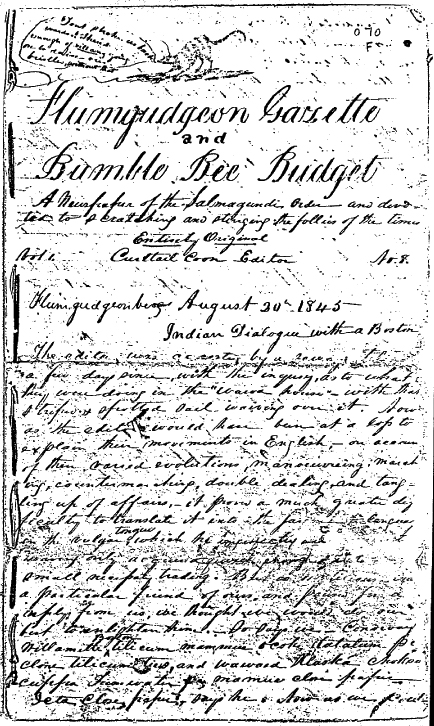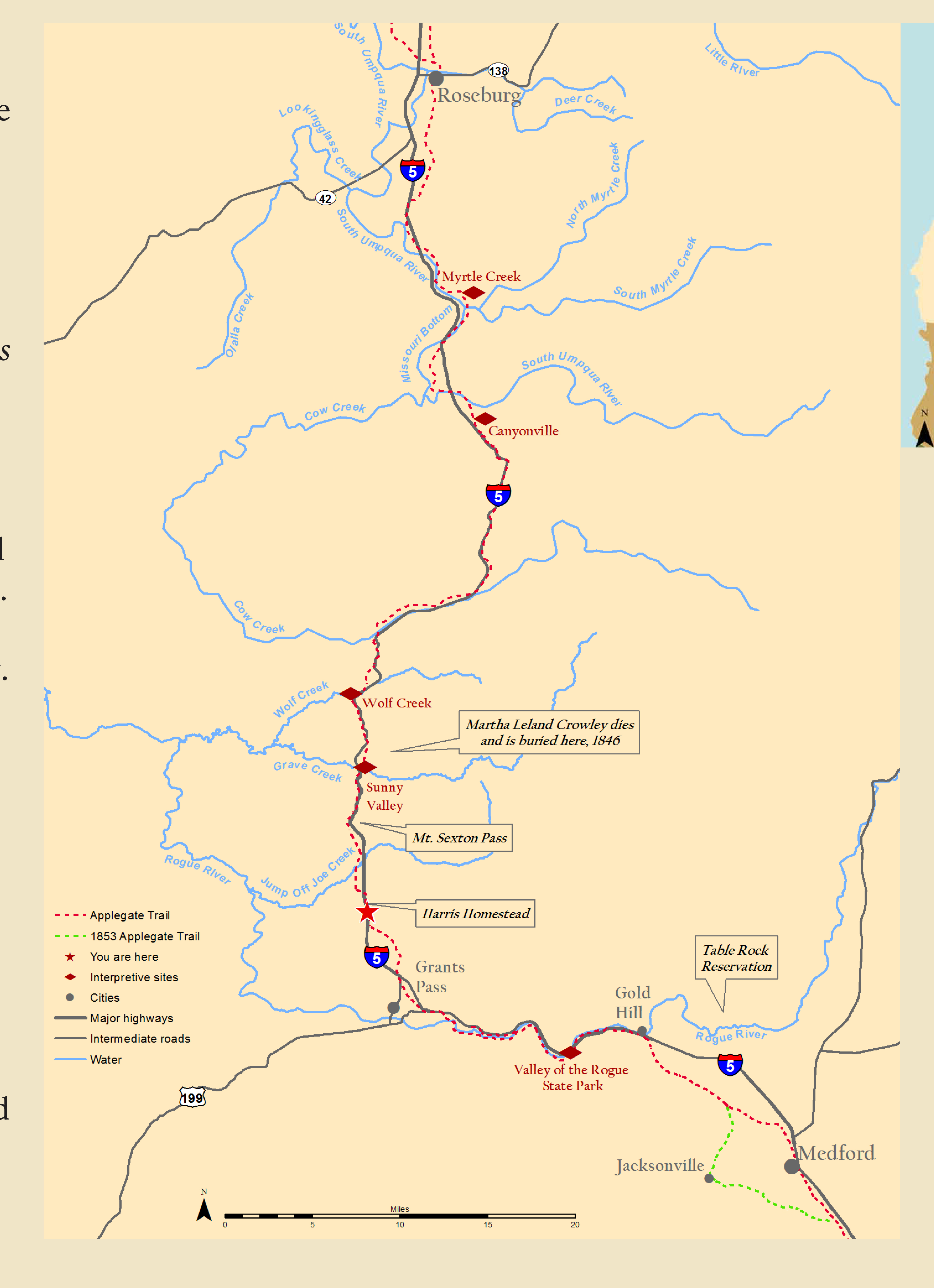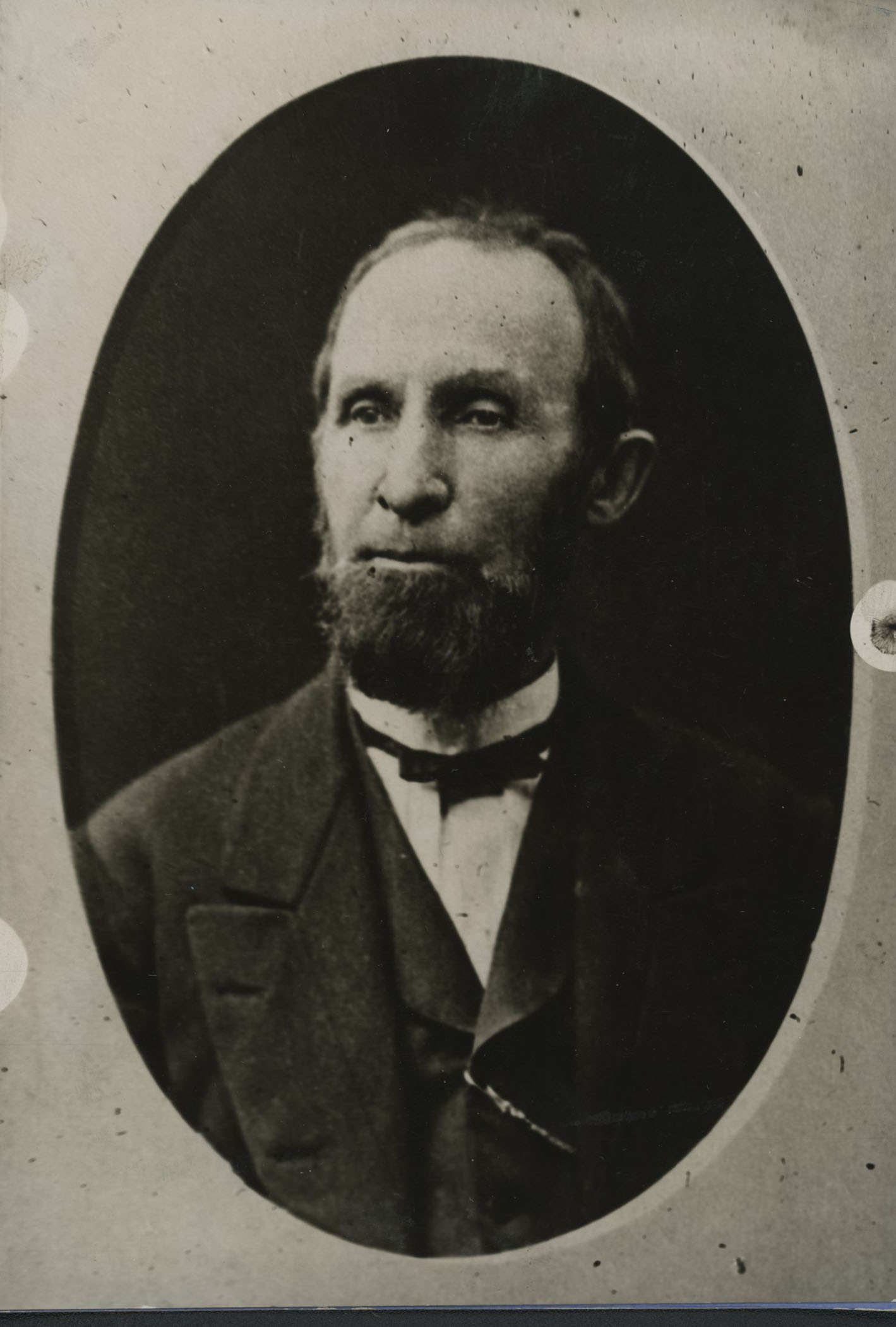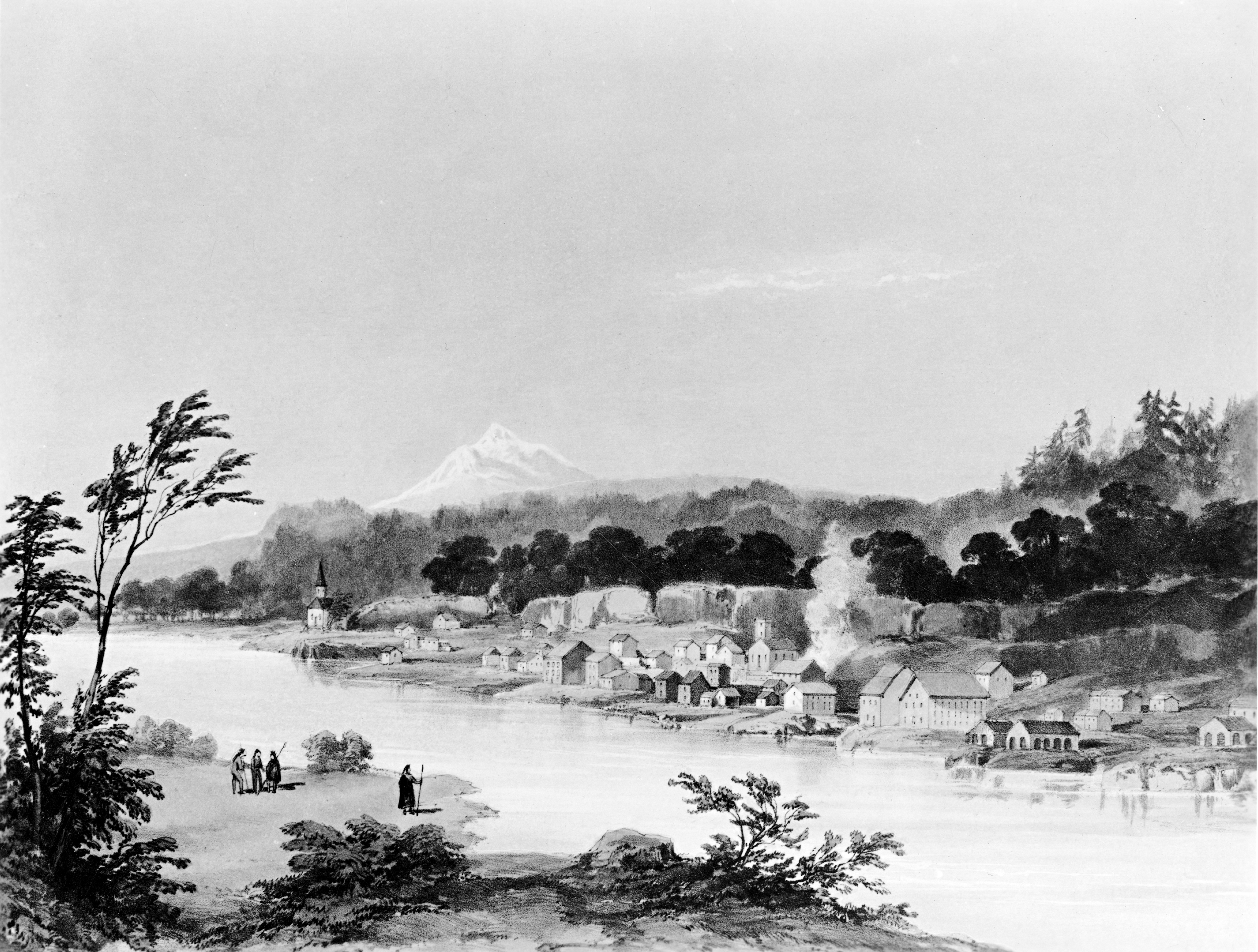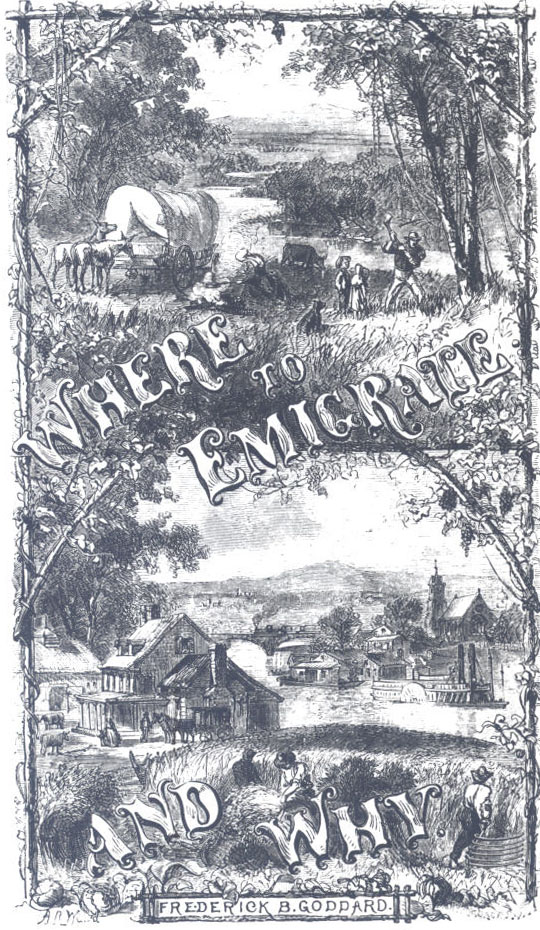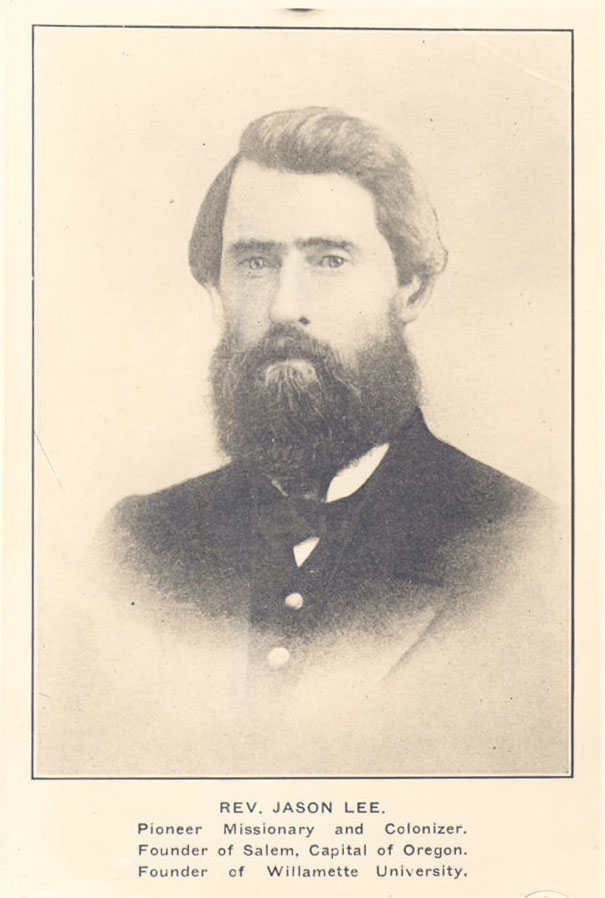Although Charles Pickett spent only thirty-three months in Oregon in the mid-1840s, he left a surprising mark. He is credited with creating the first newspaper published on the Pacific Coast, the Flumgudgeon Gazette and Bumble Bee Budget. He also served as secretary of Oregon’s first literary society and was elected a judge of the Clackamas District in the Provisional Government. But it was his flamboyant style, pugnacious writing, and eccentric behavior that most struck Willamette Valley’s resettlers.
Charles Edward Pickett was born into a substantial family in 1820 in Fauquier County, Virginia. His younger cousin, George Pickett, became a famous Confederate general. Charles Pickett grew up in plantation society and was educated in a religious academy that emphasized classical texts and academic disciplines. At age nineteen, he left Virginia and headed west to Memphis, where he lived with his older brother in Tennessee and met the governor and future president James K. Polk.
In 1842, Pickett traveled with a group of fur traders to Bent’s Fort (Colorado) and in 1843 to the recently established Fort Bridger in Wyoming. There he joined a large emigrant wagon train to Oregon that included Jesse Applegate and Peter Burnett. He arrived in the Willamette Valley in September. By the following March, Pickett had become a political propagandizer, posting Jacksonian-influenced broadsides inked on cedar shingles that he tacked to trees in Oregon City. He was fluent in French and became secretary to a meeting of Canadian residents who produced a memorial to the U.S. Congress advocating American control of Oregon, a document presented in Washington in December 1845.
Pickett’s literary interests and talent aided in his appointment as secretary to the Pioneer Lyceum and Literary Club, where he took a leading role. His writing was often politically provocative, especially his criticism of the Methodist missionary establishment. He became embroiled in contentious relations with Dr. Elijah White, and he directly challenged Methodists by making a land claim near the mouth of the Clackamas River on acreage the church officials held was theirs. Pickett built a cabin on the land and operated a truck garden (an agricultural plot growing vegetables for market). The church sued Pickett—Oregon Provisional government’s first trial—a case he won.
He continued farming, but in May 1845, in part to facilitate his attacks on White, he launched the Flumgudgeon Gazette and Bumble Bee Budget. A handwritten biweekly paper, the Gazette title included an appended description: “A Newspaper of the Salmagundi Order, Devoted to Scratching and Stinging the Follies of the Times.” The editor of record was “Curltail Coon,” alias of Charles E. Pickett, and the title refers to the foibles of gullible citizens and is a stinging criticism of prominent people and their activities. “Salmagundi” conjures Washington Irving’s satirical periodical that made fun of New York City politics in 1807–1808, while “flumgudgeon” is Pickett’s neologism for a perplexingly critical observation. Pickett wrote and distributed issues of the newspaper only while the Provisional legislature—he called it the “Flumgudgeon theatre”—was in session. Here is an example of Pickett’s expository style:
“We cannot pretend to give any regular report of the proceedings….The scenes as well as the mixing up of different plays, having rendered any attempt of this sort entirely fruitless. The last performances have very much resembled the preceding, being a heterogeneous compound burlesque of tragedy, comedy and farce, during which there are several desperate—though bloodless—conflicts acted, as much firing is done, and some tremendous magazine explosions taking place at the end of several grand finales.”
In 1845, Pickett sent copies of the paper to President Polk, along with diatribes excoriating White’s performance as Indian agent. Polk dismissed White from the office and subsequently appointed Pickett; but by the time Pickett received the news in May 1846 he had already decamped to California.
Pickett had friends sufficient to secure appointment as a judge in Clackamas County in December 1845. Nonetheless, he had decided on California, even though he did not lose sight of Oregon or his anti-Native, pro-slavery opinions. He sent a letter to the Spectator in April 1847, warning travelers on the trail through the Siskiyou mountains to California to kill Indians they might encounter, calling them “untamable rascals.” When a reader criticized him for such a blatant call to violence, Pickett replied that he only called for killing Indians on a hundred-mile stretch of the seven hundred-mile road from Oregon City to Sacramento.
In 1848, in the wake of Whitman Mission murders, Pickett offered to organize a militia of Californians to aid Oregon volunteer forces in punishing Cayuse. Nine years later, he traveled north to advocate for slavery in Oregon as politicians debated a state constitution. In 1860, he tried to derail the selection of Edward Baker for U.S. Senate, calling him a “newly imported gasbag,” and opposing him because Baker was against establishing slavery in Oregon.
By the advent of the Civil War, Oregon had disappeared from Pickett’s view. He turned his attention to California affairs as an eccentric pamphleteer and conservative populist agitator, sharply criticizing political and economic elites in the Golden State. He died in November 1882, having never married and fathering no known children. He is buried in Mariposa, California.
-
![]()
Flumgudgeon Gazette and Bumble Bee Budget, Oregon City, 1845.
Courtesy the Handwritten Newspapers Project
Related Entries
-
![Applegate Trail]()
Applegate Trail
The Applegate Trail, first laid out and used in 1846, was a southern al…
-
![Elijah White (1806-1879)]()
Elijah White (1806-1879)
Among early migrants to the Oregon Country from the United States, Elij…
-
![Oregon City]()
Oregon City
Oregon City was the first incorporated city west of the Rocky Mountains…
-
![Oregon Trail]()
Oregon Trail
Introduction In popular culture, the Oregon Trail is perhaps the most …
-
![Petitions to Congress, 1838-1845]()
Petitions to Congress, 1838-1845
Even before the first large wagon trains traveled the Oregon Trail to t…
Related Historical Records
Map This on the Oregon History WayFinder
The Oregon History Wayfinder is an interactive map that identifies significant places, people, and events in Oregon history.
Further Reading
Brier, Warren J. “The ‘Flumgudgeon Gazette and Bumble Bee Budget.’” Journalism Quarterly 36 (Summer 1959): 317.
Mahoney, Barbara. The Salem Clique. Corvallis: Oregon State University Press, 2017.
Nesmith, J.W. “Annual Address.” Transactions of the Eight Annual Reunion of Oregon Pioneer Association, 1880. Salem: 1881.
Oregon Spectator, May 28, 1846, September 2, 1847, February 24, 1848, September 7, 1848.
Pickett, Charles E., to Governor George Abernethy, November 30, 1847, Letters Received, RG 75, M-234, Reel 607, National Archives microfilm.
Powell, Lawrence Clark Philosopher Pickett. Berkeley: University of California Press, 1942.



